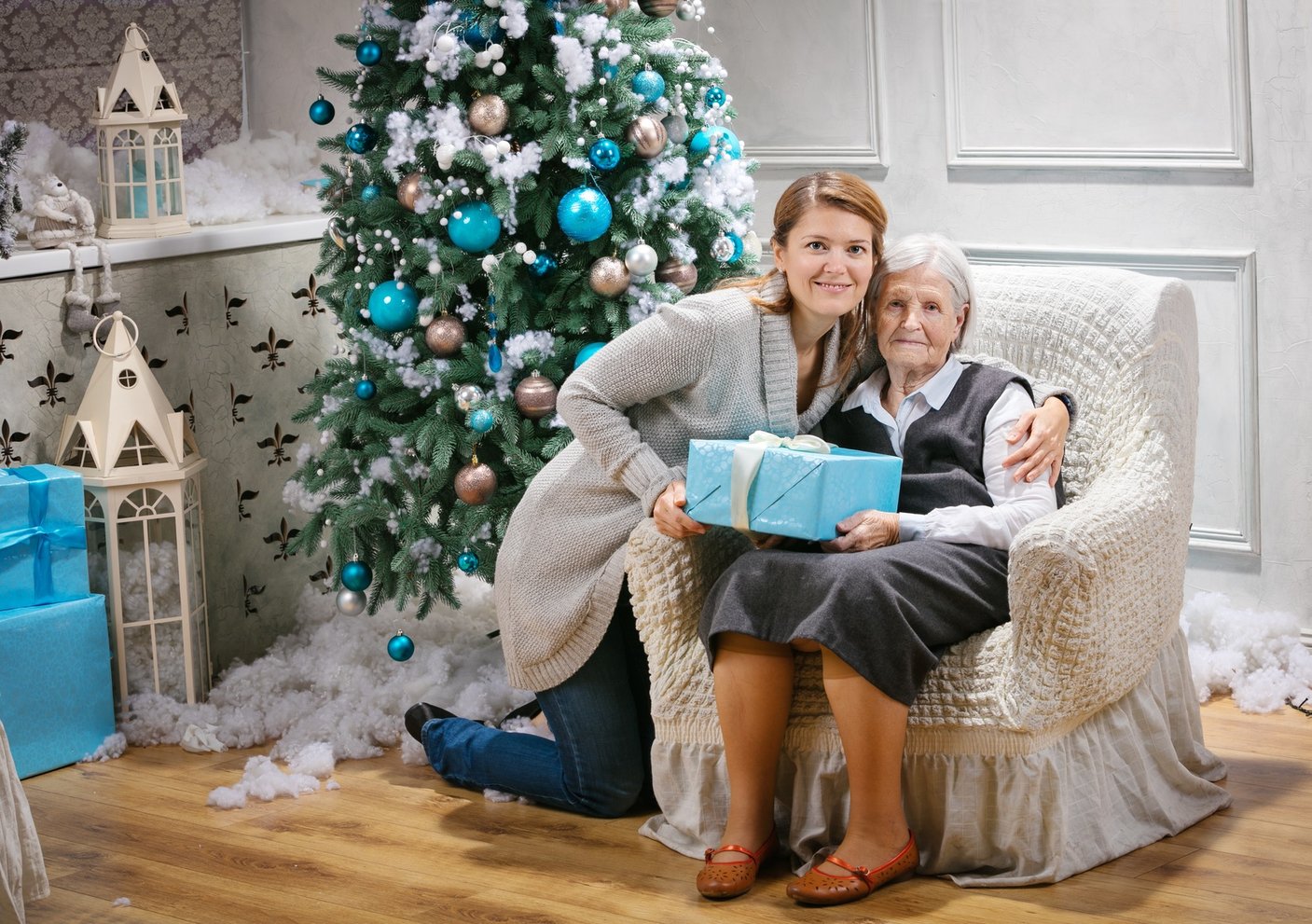
For family caregivers of seniors with dementia or age-related memory loss, the winter holidays can be an especially stressful time. In addition to planning get-togethers, shopping and keeping up with all the holiday preparations, there are nagging worries.
What happens if Dad has a meltdown at dinner? What if Mom has difficulty keeping names straight? What gift do you give a parent with dementia?
There's also sometimes a sadness that creeps in because many of us feel particularly nostalgic around this time of year. We look back on holidays past — when we were children, when our parents were young and strong — and we wish that those days weren't long gone.
So, what are some tips for coping with a loved one's memory loss during the holidays? Never fear: we have them for you. Read on.
1. Plan ahead, and don't plan too much
With relatives in town and so many holiday traditions to experience, many caregivers make the mistake of trying to plan too much — for themselves to accomplish while providing care, and also for their older loved ones to participate in.
If you feel overwhelmed running around, with kids and out-of-town visitors crowding in, consider what your older parent who has dementia would experience: complete and utter overload.
When you're making your Christmas, Hanukkah, Kwanzaa or New Year's plans, consider what your loved one can handle.
If the family wants to attend a special play or visit a holiday attraction, plan to attend earlier in the day. Many dementia patients experience "sundowning" — they become tired over the course of the day, and so can become more confused and more likely to exhibit behavioral outbursts in the early evening.
Instead of attending Friday night, then, when the crowd is likely to be heavier anyway, plan the family outing for a Sunday morning or matinee.
2. Try and keep your parent's sleep schedule as normal as possible
Shoehorning in all the shopping, visits, etc., can throw off the usual schedule. Try to minimize the impact on your Mom or Dad's usual routine.
If your parent's normal day includes an afternoon nap or going to bed before 9 p.m., for example, make sure that you (or a family helper elf!) is available to help your parent.
Maintaining your older loved one's regular sleep schedule can help him or her deal more easily with the extra stimulation that typically comes with family gatherings.
3. Ask for help
You can't be all things to all people. If you're exhausted and frazzled, you won't be able to provide effective care, and you'll run the risk of getting sick or becoming depressed.
Your primary responsibility isn't making sure the whole family has a good time at Christmas. It’s making sure that your parent's needs are met, and that your own needs are looked after.
Ask your partner or spouse to cook the holiday meal, or plan dinner out. Enlist a sibling to do some of the shopping for presents; if you send them the money over PayPal and email or text your list , you won't even have to huddle up beforehand.
4. Don't worry about finding the perfect gift
If your older loved one has advanced dementia, don't worry about shopping for a showy or exciting gift for him or her.
You can best help your parent if your gift solidifies their routine. Stock up on things you know he or she needs: day-to-day essentials, a warm sweater or cardigan, socks and such.
Give hugs, lots and lots of hugs. And, if your parent is in residential memory care at a retirement home, spend the time, that you would otherwise have spent shopping, visiting with him or her.
Your loved one's dementia doesn't stand in the way of a happy holiday.
It just requires a more structured, less frenzied approach than you might have taken in years past. Use the tips above to cope with caregiving during the season.












